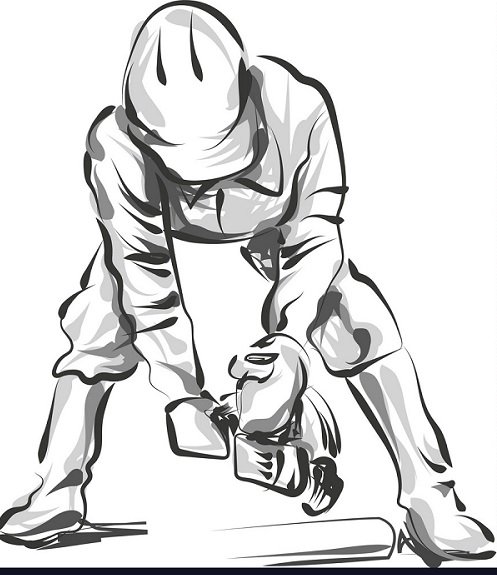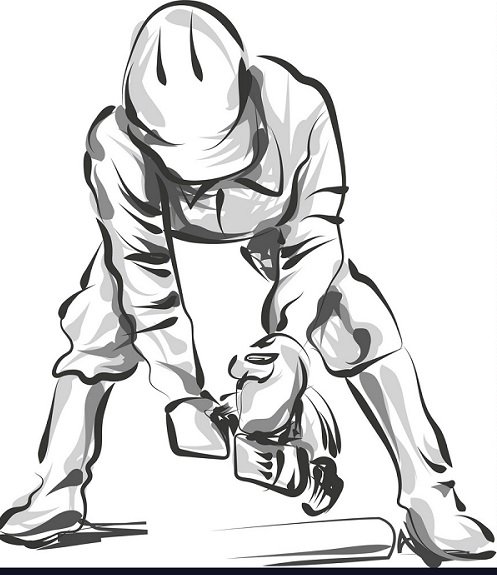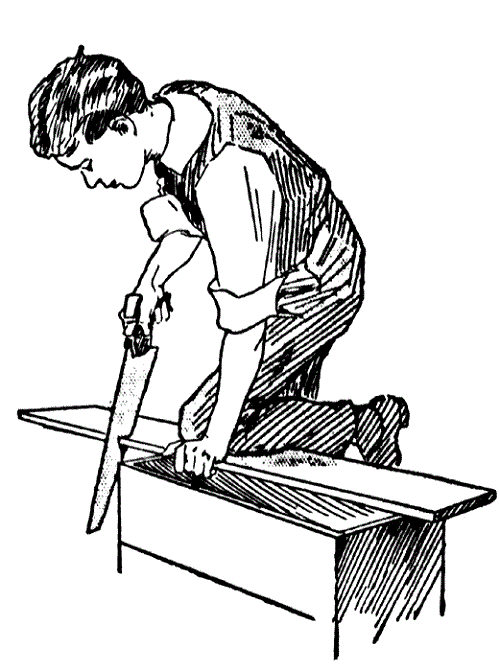Features
Work is a blessing; God bless all workers

Everything good that has ever been accomplished in human history happened because of work; usually hard work. Sometimes our most enthusiastic efforts have been focused on finding ways to make work easier. But the work never completely goes away, does it? That’s because work is the engine of life. It gives us reason to get up in the morning and satisfaction when we take our rest in the evening. In many countries, there is a special day to honour the men and women who get things done—we call it Workers Day, May Day or Labour Day.
Most of us spend a good portion of our day working. Whether in an office, classroom, or construction site; the garden, home, factory, or on the farm, work is simply a part of life. Usually we are thankful to have work, though we may be anxious to finish it as quickly as possible. Work allows us to provide the necessities of life for ourselves and our loved ones. But have you ever thought of work as a cure for troubles and heartache?
Gordon B. Hinckley a religious leader once said, “I believe that for most of us the best medicine for loneliness is work and service on behalf of others. The best antidote I know for worry is work. The best medicine for despair is service. The best cure for weariness is the challenge of helping someone who is even more tired.”

Because work, by definition, requires effort and exertion, we tend to see it as something that makes life harder. So how can it possibly help us through hard times? Maybe the answer lies in the fact that work gives purpose and meaning to life; especially when our work makes life better for someone in need. Such work lifts our spirits and puts our problems in perspective. A person may retire from a career, but we need never retire from serving others and seeking to improve the world.
Work is a mental, physical, and spiritual necessity. We need it not only to stay alive but to live well and to grow. When a mother of young children was asked how she made it through difficult times, she explained that mundane tasks like washing and cooking kept her going. Whenever she felt anxious or discouraged about her life, she would find something to do, and somehow, while organising a closet or at the market shopping for groceries, she discovered the strength to carry on.
It’s work that gets the grass mowed and the car washed and the corn and yam in the barn at the end of the season. It’s work that gets contracts filled, laundry folded, disputes settled, diseases cured, and food transported from one end of the country to another. Work designs and builds highways, bridges, homes, and factories.
But even more than that, work builds people. It teaches discipline, focus and sacrifice. Work is more than what we do; it shapes who we are. Far from being something to avoid, work is a blessing and a necessity; we are thankful we can work, and we seek work that will make our lives and our world a better place.
No one did this better than Thomas Edison. At a young age, he began tinkering with things in his basement laboratory, doing what some might call work but what he simply saw as living. He received more than 1,000 patents—the equivalent of one every two weeks throughout his working career. His inventions include the incandescent light bulb, the phonograph, batteries, motion pictures, and the first viable system of centrally generating electric light, heat, and power. At his death, people and communities around the world dimmed their lights in honour of his work. Edison said, “Opportunity is missed by most people because it is dressed in overalls and looks like work.”
Work isn’t measured eight to five any longer than it is reserved for what we often call the workplace. Isn’t every place a place of work? There’s housework and homework, teamwork and paid work. We work in the garden and in our churches; we work at getting an education; we work at being kind to one another, at selflessly serving those in need. We work at getting in shape and getting past where we were yesterday. We work at making something of our lives.
More than 1,600 years ago, St. Augustine is said to have taught this timeless truth: “Pray as though everything depended on God. Work as though everything depended on you.”
Indeed, our willingness to work can make a big difference in life. A leader who worked for several years in a service organisation with hundreds of young men and women observed that the defining quality of the best young leaders was their ability to work. Those who knew how to work were happier, more confident, and better able to adapt to new situations. They were problem solvers. And most often, those young people went on to have successful lives. From early on, work spelled the difference.
And so we celebrate work. It’s a day set aside to rest from labour, even as we remember all those who labour to build this nation: in the farms and factories, the offices and warehouses, the stores and schools, the roads and highways; anyplace where honourable, honest labour is performed. Those who work fuel the progress of nations and the betterment of our communities. Truly, workers deserve a pat on the back and a heartfelt reminder of their importance in our society.
Work is good for the soul. It builds muscle and character, it strengthens hand and heart, and nothing gets done or moves forward without it. Though work is different today than a 100 years ago, it’s still essential to life and happiness. Good work satisfies the soul and makes the world go round.
And so, on this day when we praise work and workers, may we roll up our sleeves and celebrate the blessing of work.So the next time you feel worried or downhearted, try some work. Your honest efforts to bless others and contribute to the world will bring the wonderful and sometimes unexpected blessings of work.
By Samuel Enos Eghan
Features
Tears of Ghanaman, home and abroad

The typical native of Sikaman is by nature a hospitable creature, a social animal with a big heart, a soul full of the milk of earthly goodness, and a spirit too loving for its own comfort.

Ghanaman hosts a foreign pal and he spends a fortune to make him very happy and comfortable-good food, clean booze, excellent accommodation and a woman for the night.
Sometimes the pal leaves without saying a “thank you but Ghanaman is not offended. He’d host another idiot even more splendidly. His nature is warm, his spirit benevolent. That is the typical Ghanaian and no wonder that many African-Americans say, “If you haven’t visited Ghana. Then you’ve not come to Africa.
You can even enter the country without a passport and a visa and you’ll be welcomed with a pot of palm wine.
If Ghanaman wants to go abroad, especially to an European country or the United States, it is often after an ordeal.
He has to doze in a queue at dawn at the embassy for days and if he is lucky to get through to being interviewed, he is confronted by someone who claims he or she has the power of discerning truth from lie.
In short Ghanaman must undergo a lie-detector test and has to answer questions that are either nonsensical or have no relevance to the trip at hand. When Joseph Kwame Korkorti wanted a visa to an European country, the attache studied Korkorti’s nose for a while and pronounced judgment.
“The way I see you, you won’t return to Ghana if I allow you to go. Korkorti nearly dislocated her jaw; Kwasiasem akwaakwa. In any case what had Korkorti’s nose got to do with the trip?
If Ghanaman, after several attempts, manages to get the visa and lands in the whiteman’s land, he is seen as another monkey uptown, a new arrival of a degenerate ape coming to invade civilized society. He is sneered at, mocked at and avoided like a plague. Some landlords abroad will not hire their rooms to blacks because they feel their presence in itself is bad business.
When a Sikaman publisher landed overseas and was riding in a public bus, an urchin who had the impudence and notoriety of a dead cockroach told his colleagues he was sure the black man had a tail which he was hiding in his pair of trousers. He didn’t end there. He said he was in fact going to pull out the tail for everyone to see.
True to his word he went and put his hand into the backside of the bewildered publisher, intent on grabbing his imaginary tail and pulling it out. It took a lot of patience on the part of the publisher to avert murder. He practically pinned the white miscreant on the floor by the neck and only let go when others intervene. Next time too…
The way we treat our foreign guests in comparison with the way they treat us is polar contrasting-two disparate extremes, one totally incomparable to the other. They hound us for immigration papers, deport us for overstaying and skinheads either target homes to perpetrate mayhem or attack black immigrants to gratify their racial madness
When these same people come here we accept them even more hospitably than our own kin. They enter without visas, overstay, impregnate our women and run away.
About half of foreigners in this country do not have valid resident permits and was not a bother until recently when fire was put under the buttocks of the Immigration Service
In fact, until recently I never knew Sikaman had an Immigration Service. The problem is that although their staff look resplendent in their green outfit, you never really see them anywhere. You’d think they are hidden from the public eye.
The first time I saw a group of them walking somewhere, I nearly mistook them for some sixth-form going to the library. Their ladies are pretty though.
So after all, Sikaman has an Immigration Service which I hear is now alert 24 hours a day tracking down illegal aliens and making sure they bound the exit via Kotoka International. A pat on their shoulder.
I am glad the Interior Ministry has also realised that the country has been too slack about who goes out or comes into Sikaman.
Now the Ministry has warned foreigners not to take the country’s commitment to its obligations under the various conditions as a sign of weakness or a source for the abuse of her hospitality.
“Ghana will not tolerate any such abuse,” Nii Okaija Adamafio, the Interior Minister said, baring his teeth and twitching his little moustache. He was inaugurating the Ghana Refugee and Immigration Service Boards.
He said some foreigners come in as tourists, investors, consultants, skilled workers or refugees. Others come as ‘charlatans, adventurers or plain criminals. “
Yes, there are many criminals among them. Our courts have tried a good number of them for fraud and misconduct.
It is time we welcome only those who would come and invest or tour and go back peacefully and not those whose criminal intentions are well-hidden but get exposed in due course of time.
This article was first published on Saturday March 14, 1998
Join our WhatsApp Channel now!
https://whatsapp.com/channel/0029VbBElzjInlqHhl1aTU27
Features
Decisions have consequences
In this world, it is always important to recognise that every action or decision taken, has consequences.
It can result in something good or bad, depending on the quality of the decision, that is, the factors that were taken into account in the decision making.
The problem with a bad decision is that, in some instances, there is no opportunity to correct the result even though you have regretted the decision, which resulted in the unpleasant outcome.
This is what a friend of mine refers to as having regretted an unregretable regret. After church last Sunday, I was watching a programme on TV and a young lady was sharing with the host, how a bad decision she took, had affected her life immensely and adversely.
She narrated how she met a Caucasian and she got married to him. The white man arranged for her to join him after the marriage and processes were initiated for her to join her husband in UK. It took a while for the requisite documentation to be procured and during this period, she took a decision that has haunted her till date.
According to her narration, she met a man, a Ghanaian, who she started dating, even though she was a married woman.
After a while her documents were ready and so she left to join her husband abroad without breaking off the unholy relationship with the man from Ghana.
After she got to UK, this man from Ghana, kept pressuring her to leave the white man and return to him in Ghana. The white man at some point became a bit suspicious and asked about who she has been talking on the phone with for long spells, and she lied to him that it was her cousin.
Then comes the shocker. After the man from Ghana had sweet talked her continuously for a while, she decided to leave her husband and return to Ghana after only three weeks abroad.
She said, she asked the guy to swear to her that he would take care of both her and her mother and the guy swore to take good care of her and her mother as well as rent a 3-bedroom flat for her. She then took the decision to leave her husband and return to Ghana.
She told her mum that she was returning to Ghana to marry the guy in Ghana. According to her, her mother vigorously disagreed with her decision and wept.
She further added that her mum told her brother and they told her that they were going to tell her husband about her intentions.
According to her, she threatened that if they called her husband to inform him, then she would commit suicide, an idea given to her by the boyfriend in Ghana.
Her mum and brother afraid of what she might do, agreed not to tell her husband. She then told her husband that she was returning to Ghana to attend her Grandmother’s funeral.
The husband could not understand why she wanted to go back to Ghana after only three weeks stay so she had to lie that in their tradition, grandchildren are required to be present when the grandmother dies and is to be buried.
She returned to Ghana; the flat turns into a chamber and hall accommodation, the promise to take care of her mother does not materialise and generally she ends up furnishing the accommodation herself. All the promises given her by her boyfriend, turned out to be just mere words.
A phone the husband gave her, she left behind in UK out of guilty conscience knowing she was never coming back to UK.
Through that phone and social media, the husband found out about his boyfriend and that was the end of her marriage.
Meanwhile, things have gone awry here in Ghana and she had regretted and at a point in her narration, was trying desperately to hold back tears. Decisions indeed have consequences.
NB: ‘CHANGE KOTOKA INTERNATIONAL AIRPORT TO KOFI BAAKO INTERNATIONAL AIRPORT’
Join our WhatsApp Channel now!
https://whatsapp.com/channel/0029VbBElzjInlqHhl1aTU27






